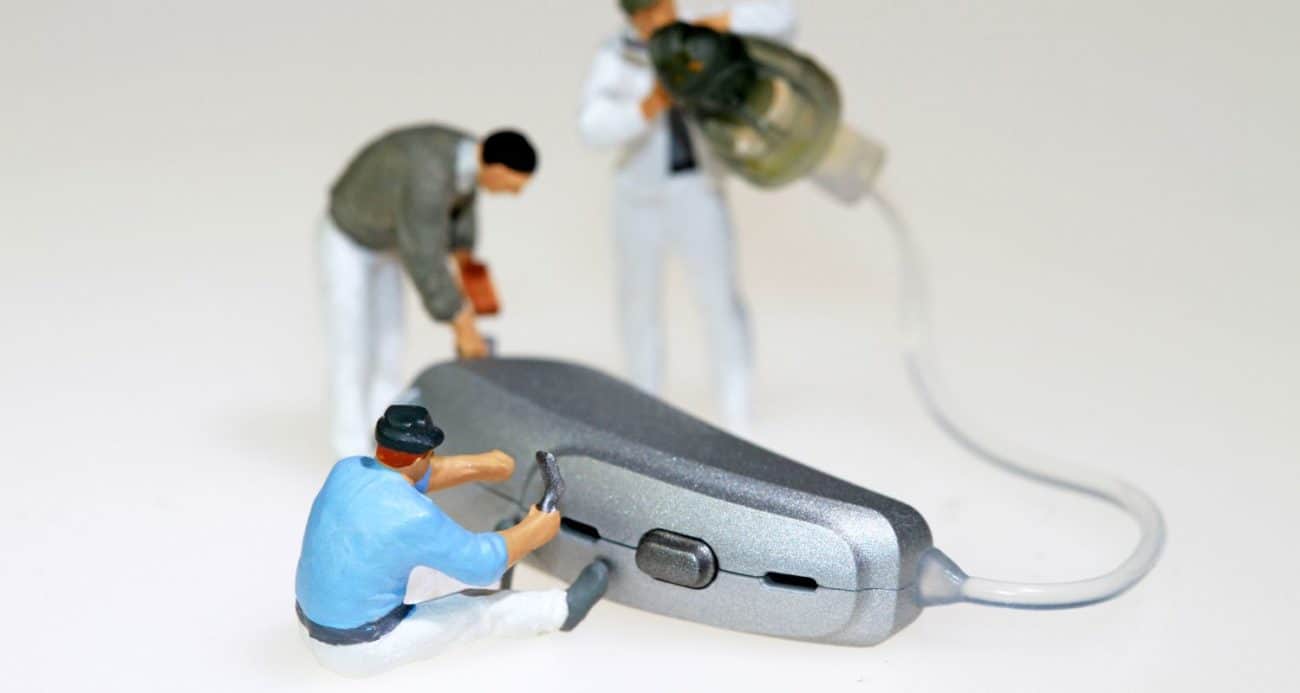- Everyday Sounds That May Be Making Your Tinnitus Worse - May 7, 2025
- The Hidden Dangers of Everyday Noise and How to Stay Safe - April 9, 2025
- World Hearing Day Serves as a Reminder to Prioritize Hearing Aid Maintenance - March 3, 2025
How Common are Hearing Aids
Studies estimate that over 13% of adults in the United States suffer from hearing loss. It is tricky to get an exact number for a number of reasons, but it is safe to say that no less than 38 million and as many as 48 million people are directly impacted. And the most common solution for all of these people is hearing aids.
Modern hearing aids are tiny and discreet, usually around 1.5 cm long, and rest behind your ear. Both their sound and their fit are customized to meet each individual’s need. These tens of millions of people depend on their hearing aids to engage with life to their greatest potential, so clearly any hearing aid problems must be addressed with urgency.
The First Three Most Basic Problems and Their Solutions
There are four basic problems that people most commonly have with their hearing aids. The first three are:
- The hearing aids are Dead (they don’t produce any sound)
- The hearing aids will not turn up loud enough
- The hearing aids are distorting or sound weird
To address any of these three problems, start with these basic steps and you are likely to identify and solve your issue.
- First, it may sound silly, but it is a very common mistake: Check to make sure that your hearing aid is turned on. Once you have confirmed that it is in fact on, try turning it off and on again.
- Next, closely inspect the hearing aid for any earwax or debris that might be clogging the microphone, the tubing, or the ear-mold. Some tiny physical obstruction may be the culprit. Look for cracks or droplets of moisture. If it is a crack you will have to make a visit to your hearing health professional ASAP.
- If it still is not working, double check that your battery is inserted in the proper direction. Flip it over and now see. On most hearing aids, the battery door will not close if the battery is not inserted in the proper direction. Does your battery door close as it should?
- Is your volume turned up? Turn it down and up again and see if you can distinguish any difference. If everything is working properly you should be able to tell the difference immediately.
- Many hearing aids allow users multiple settings for different situations. Flip through the settings and try each one out for a couple minutes to make sure the problem is not just with one setting. It is quite likely that you may accidentally have your hearing aids on the wrong setting and this is likely to be confusing or feel off.
- Still not working? Maybe you need to replace the battery. Look it over. It may be corroded, in which case it will need replacing. Look over the battery contacts within the device. If one of these tiny metallic prongs is corroded you can open and close the battery door a few times and this may knock off the debris. Or you may need to take it to your hearing health professional to clean the contacts.
Feedback, That High Whistling Sound
The fourth common problem is hearing aids feeding back, making a high-pitched whistling sound. If this happens, try taking them out of your ears and putting them back in. For whatever reason they may have just not been inserted correctly. Then turn the volume down. If the feedback stops when you turn the volume down then your issue is most likely the fit. You need to have the fit adjusted.
If you have tried all this and the feedback persists, the problem is likely to not be the hearing aids, but your ears. You probably have impacted earwax. This can cause you to gradually increase the volume until it causes feedback or it can impact the fit.
And Finally
If none of these solutions has worked, it is time to make an appointment with one of our specialists ASAP. The hearing aids may be damaged and require attention. Or if it has been a while since your last exam, it is perfectly reasonable that your hearing may have changed, so your hearing aids will require adjusting. It is often very frustrating when something you have come to depend on malfunctions, but help is quick and easy.

